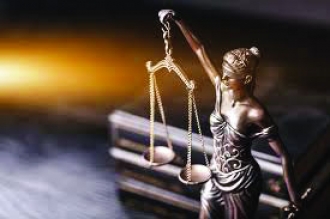
The hallmark of a healthy democracy is the rule of law. And what is this rule of law? Equal rights to all, special privileges to none. The Indian democracy ensures this through the three institutions of Executive, Legislature and Judiciary.
A free press, of course, is another institution to monitor as a neutral observer so that the institutions act in consonance for the maintenance of the rule of law.
Of late, there have been several debates on institutions going for some kind of an overreach. While that may be true for the Executive and the Legislature, it seems to be a misnomer in the case of Judiciary.
The very purpose of Judiciary is to act as a watchdog to make sure that Executive and Legislature perform their duties in accordance with law.
Judicial overreach is thus an imaginary condition, a bogey raised by those who find it intervening in high handedness. But Judiciary is a machinery that operates to ensure that the common man gets justice. And this is done with the help of agents of law, that is, the lawyers.
A disturbing trend has been some kind of a disarray in this agency as commerce and not justice is becoming the key objective of the legal fraternity. Naturally, when commerce becomes the need, means become immaterial. Or rather, they facilitate the end by all means. The result has been that justice is not distributive, it has become selective. So, it is the hand-maiden of some.
The recent suggestion of the apex court to the Central Government to bring a law to regulate the legal profession and cap lawyers’ fees aims to address difficulties that the poor face in accessing justice. In the process the court seems to be concerned about legal ethics. There are, however, many others dimensions too, of this legal ethics that need to be addressed.
There is need to look at all those issues that are doing a disservice to the cause of justice. What goes behind all this undesirable action of some members of the legal fraternity is, of course the profit motive that is the driving force. But regulating the professional fees may not be workable. Just like the case of medical profession. With the growth of the corporate hospitals, the basic objective of the medical practitioner has become moneymaking. Same is true of legal profession. The capping of professional fee may not solve the problem. Because there will always be the underhand deal.
There is need for stronger focus on professional conduct and punitive action in case of faltering. If it is criminal negligence in the case of doctors, it is criminal indulgence in the case of lawyers.
There is need for strong mechanisms to report misconduct and improve the legal machinery to discriminate between frivolous, motivated and genuine litigation. It is important to ensure that the law is not used as a tool by a lawyer-criminal nexus to harass the law abiding. Such scenarios do exist. How to contain this is certainly a difficult question to answer, but there is need to fix lawyer’s liability in false cases.
The need is to emphasize professional ethics and make the guilty stand in the dock. From instituting criminal cases to seeking unnecessary adjournments to dragging cases to higher courts are all means to pursue the commerce objective. It is time these tendencies were curbed and those responsible made to compensate. It is time we saved the law.
By Pramod Pathak
The writer is a Professor of Management at IIT (ISM),Dhanbad. He can be reached at [email protected]
Courtesy: Daily Pioneer














